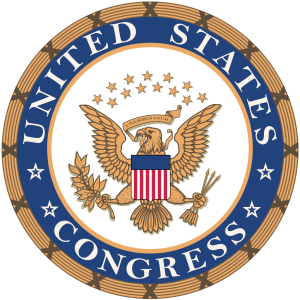
I could wax eloquent on behalf of used car salesmen, or guard the virtue of attorneys, and even preach on the positivity of out-sourced corporate customer service. All those efforts would pale, it seems, in comparison to a defense of the United States Congress. With approval ratings that read like a Fairbanks weather report, Congress struggles to stave off perceptions of either feckless imbecility or craven self-interestedness.
Ideologues and partisans pressure members for purity, sometimes at cross-purposes. RINOs and DINOs allegedly dominate the halls of the Hill, and moderate squishes ruin the seemingly simple solutions that flow from ideological commitments. The Republican health care “debacle” revealed the pressure on both sides. Conservative free-marketeers were livid that Collins and Murkowski pinched the process from the left, while Lee and Johnson’s demand for an ideologically consistent policy earned them steady rebukes from Trumpkins far and wide. All were derided, at different times, for deserting their party, president, and principles.
We’ve arrived at this point, where Congress is lampooned for failing to move a presidential agenda or for exercising too much independence, through misunderstanding as opposed to an evolving wisdom. Congress does not exist to carry out the president’s will. His agenda is not its agenda. Republicans in Congress, aside from the partisan tie that binds them, owe nothing to Donald Trump and his desire to either build a wall or clamp down on illegal immigration in other ways. (Granted, the ones that ran, for years, on overturning the Affordable Care Act, breached the public trust, in a way, by declining the chance to do so last month, but that is a separate matter.)
If Congress sees itself as bound to the president’s desires, it is actually failing in its constitutional function. We do not have a parliamentary system because our founders were convinced the Congress and Executive should be built to work both with and against each other. They are to be jealous of their powers and places, competitive when confronted with encroachments on those powers, and armed to battle when conflicts arise. Things get done when it is in the interests of both branches to move forward.
Those interests, and this is where it gets fun, differ. Members of Congress are beholden, foremost, to their own belief systems and their constituents. They are in Washington, D.C., fundamentally, to represent those who put them in office. They cast votes with Moms, Dads, towns and cities, counties and states in mind as opposed to Donald Trump’s approval ratings. The President has a different kind of constituency. He represents a national mood, and large blocs of citizens that cut across borders and demographics. He is sensitive to different kinds of stimuli when compared to his rivals who work a few blocks down Pennsylvania Avenue.
We all want members of Congress that are principled, brave, and willing to toss aside their career aspirations to pursue good public policy—whatever that means. Even if we get a generation of those kinds of public servants—good luck with that—there is at least the slight chance they will disagree on what good public policy actually is. Throw the President into the discussion, and he may disagree with them as well. So even if we assume that everyone is acting in the best interests possible, they will still likely disagree if they represent difference constituencies and operate based on varying ideological and intellectual commitments.
Of course, we rarely elect such principled figures. We elect human beings slavishly trying to get re-elected at all costs. They are likely to change their beliefs, attitudes, rhetoric, and, in some cases, even their party affiliations, if they think they will win more votes in the process. Members of Congress flip-flop. They shift, hedge, and confound. They do so mostly for political advantage, which means they have calculated these actions will yield more votes than the status quo.
All of this implies the politicians believe these actions will appeal to their supporters. Of course, sometimes they are wrong. Sometimes, as they fly off into the sunset, they aim air-to-air missiles at a political rival that accused them of being less than a hero because they were a prisoner of war. Sometimes they alienate more voters than they meant to, or they simply miscalculated the political climate. But their actions are largely driven to cement their relationships with enough constituents to win the next time votes are cast.
The line of reasoning leads to an uncomfortable conclusion. Our politicians, as they bicker, whine, dissemble, and maneuver, do so because they are convinced it will help them with voters, or that voters will forget or not care. We, The People, have chosen this Congress. Whatever its shortcomings, they bear a striking resemblance to our own.
Should it surprise us that Congress is unable to arrive at rational policy outcomes on contentious, value-laden issues like health care, when they represent us? We, like Congress, are polarized, divided, and at one another’s rhetorical throats. If we want a different Congress, or a different President, we need to be different—as citizens, voters, parents, educators, journalists, and friends.
 Bert Wheeler
Bert Wheeler
 Jeff Haymond
Jeff Haymond
 Marc Clauson
Marc Clauson
 Mark Caleb Smith
Mark Caleb Smith
 Tom Mach
Tom Mach